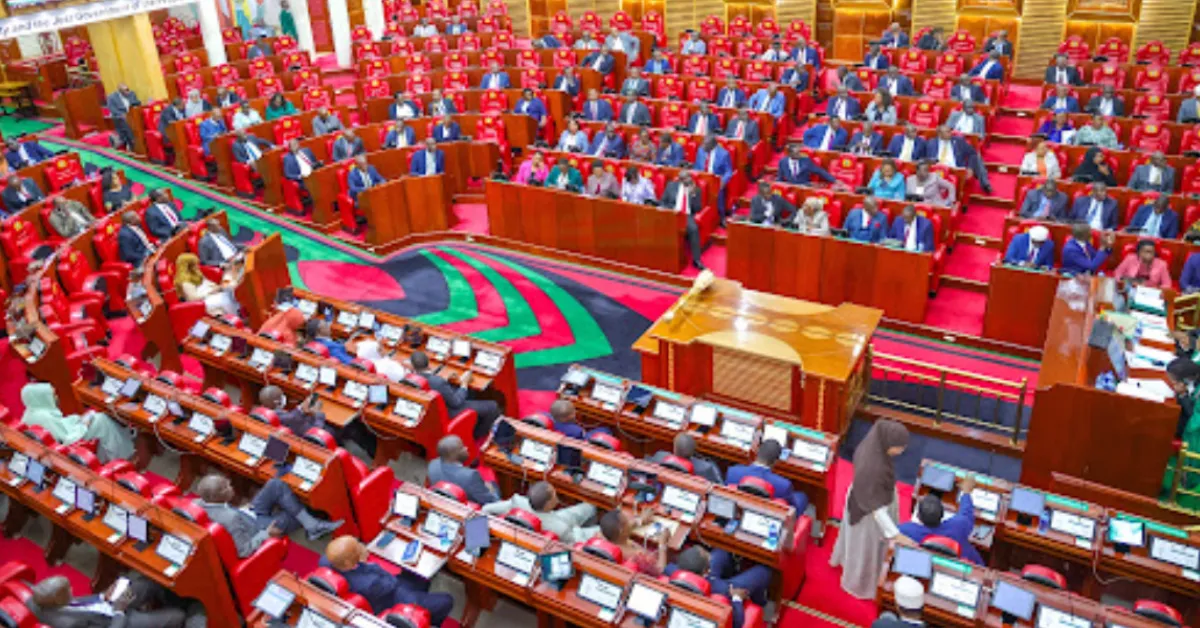Kenya Considers Tax Amendments to Spur Manufacturing

Kenya's National Assembly is currently deliberating critical amendments to the country's tax laws, intending to stimulate investment in the manufacturing sector and reduce costs within the power industry.
The proposed legislative changes, encapsulated in the Value Added Tax (Amendment) Bill, 2025, and the Excise Duty (Amendment) Bill, 2025, have the potential to significantly reshape financial incentives for investors by extending tax exemptions and eliminating duties on key infrastructure components. The Value Added Tax (Amendment) Bill, 2025, which has government backing, seeks to clarify and extend tax exemptions on capital goods for manufacturers who invest at least Sh2 billion.
A key aspect of this bill is resolving ambiguities surrounding the duration of exemptions provided for such substantial investments. The proposed legislation stipulates that exemptions initially granted before January 1 would continue to apply for twelve months beyond that date. Furthermore, the bill seeks to extend the exemption period by an additional year following the enactment of the new amendment.
Lawmakers hope that providing this clarity will reduce uncertainty for investors and encourage capital-intensive manufacturing ventures. This move is part of a broader effort to boost industrial growth, as Kenya strives to establish itself as a regional production and export hub. National Assembly Speaker Moses Wetang’ula has directed the House Business Committee to expedite its review of the bill. The legislation, which was published on March 13, 2025, has already been prioritised for deliberation.
Wetang’ula emphasises its significance by calling upon the departmental Committee on Finance and National Planning to scrutinise its provisions and submit a report. If enacted, the measure is expected to create a more predictable tax environment, offering reassurance to investors navigating Kenya’s regulatory landscape. In parallel, lawmakers have advanced the Excise Duty (Amendment) Bill, 2025, which aims to alleviate financial burdens in Kenya’s power sector. Introduced by Majority Leader Kimani Ichung’wah, the bill proposes removing excise duty on imported fully assembled electric transformers.
This amendment comes in response to concerns that an earlier tax reform—the Tax Laws (Amendment) Bill, 2024—had inadvertently raised costs for transformer manufacturing and supply. The previous excise duty, set at 25 percent, was originally intended to promote local assembly. However, industry stakeholders warned that the policy had the opposite effect, increasing costs and making it less economically viable to produce transformers domestically.
Acknowledging these challenges, lawmakers now seek to reverse the excise duty on imported transformer components. The proposal aims to enhance affordability, improve electricity distribution infrastructure, and create a more conducive environment for power sector investment. President William Ruto has already signed the Excise Duty amendment into law, and businesses involved in Kenya’s energy industry can anticipate relief in import costs. The impact of this change is expected to be far-reaching, potentially accelerating electrification efforts and supporting industrial expansion.
By addressing taxation concerns in two critical sectors, manufacturing and power, the government aims to strike a balance between revenue collection and economic growth. These adjustments reflect Kenya’s ongoing commitment to position itself as an attractive destination for investors, especially those engaged in high-value industries. While the passage of these amendments hinges on Parliamentary approval, industry stakeholders and financial analysts are closely monitoring developments. If successfully enacted, the reforms could bolster investor confidence, create job opportunities, and enhance Kenya’s competitiveness on the global stage.














Add new comment